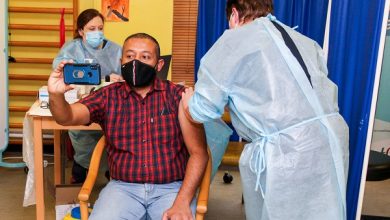How to stay well when cocooning

Over the next few weeks the HSE Psychology services for Galway, Mayo and Roscommon will be streamlining some key information for Boyletoday.com viewers based on the evidence of what works in similar circumstances. Our themes will be around building resilience, coping with cocooning, managing relationships, caring for those with disabilities and other vulnerabilities and sharing supports for those who are ill or bereaved. This week we continue with a differnet theme: ‘How to stay well while cocooning’.
Cocooning is a measure to protect the health of those of us who are over 70 years and those who are medically vulnerable/have underlying health conditions. Cocooning means that people are asked to stay at home. In a recent nationwide study by the National University of Ireland Galway and Dublin City University, 14% of respondents reported they were cocooning, while 35% of respondents have taken on additional caring responsibilities during lockdown.
Dr Joanne Byrne, Senior Clinical Psychologist, Cystic Fibrosis Services GUH, has spoken with colleagues Dr Diane O’Mahony and Rachel Counihan in Psychiatry of Later Life, Community Healthcare West and they have put together some information on the topic of cocooning, common reactions, how to help yourself as well as some supports that are available.
Common Reactions to Cocooning:
Feeling safe and protected: Knowing that others are thinking of you, taking steps to reduce the reach of the virus, and maintaining connection can feel like a comfort and may provide relief during uncertain times. It may also feel reassuring that the country is working together.
Isolation/Loneliness: In the absence of everyday acts like spending time in others’ company, hugging and congregating with their community, it is normal to feel more isolated and lonely
Vulnerability: Many people living with chronic health difficulties have learned to draw on a range of strategies to help them feel confident that they can manage their condition. However, in the current crisis, they are likely to receive frequent reminders of their ‘vulnerability’, which can be disconcerting.
Exposure: Living with an underlying health condition is a fact of life for many. However, some people cocooning may feel uncomfortable with the focus of attention they are now receiving.
Fear: It is normal to feel afraid and uncertain as we await developments and updates on COVID-19.
Boredom and lack of achievement: Having less structure and the absence of activities outside of the house can lead to feeling without purpose, boredom and with little sense of achievement.
Inadequacy: Stories and online articles proposing taking up new hobbies can lead to feelings of inadequacy and guilt. This is particularly likely to be the case for those who use social media.
How you can help yourself if you are cocooning:
- Make your physical and mental wellbeing your priority. Develop a routine, exercise daily (the remit of cocooning has been extended this week), eat well, keep up your medical treatments, do things that you enjoy and stay connected to others. Finding value and engagement in these activities can bring back a sense of control over your day-to-day life.
- Remind yourself of your strengths in managing this particular situation – look at what has worked up to now. Many people with underlying conditions have become experts at being apart from others to eliminate health risks.
- Acknowledge and accept what you are feeling. By labelling and accepting our feelings we can make ourselves feel calmer. The duration and impact of this pandemic is uncertain so feeling more anxious, stressed and insecure are entirely normal responses. Talk to those you trust about how you are feeling, and seek support where necessary. Minimise your exposure to media and use only reliable news sources.
- Ground yourself in the present moment – Present-moment awareness involves attending to current experience rather than predicting future events or dwelling on the past. Notice when you are getting caught up in thoughts and worries. Stop what you are doing. Take time to notice your surroundings. Feel your feet on the ground. Slow your breathing: Breathe in for 4, hold for 4, out for 6. This helps to regulate your body and encourages a feeling of calm.
- Be aware of the power of your thoughts. Remember our thoughts are not always true. Distance yourself from negative thoughts by prefacing them with ‘I am having the thought that ________’ e.g. ‘I am having the thought that this will go on forever’. Practice choosing to think helpfully: Instead of seeing cocooning as isolation, see it as minding yourself and protecting others.
How you can support someone who is cocooning:
- Take the risk seriously. For many of us, social distancing is an awkward new behaviour that is starting to feel more like a nuisance than a necessity. Never has it been truer that the behaviour of the many can help the few. By maintaining responsible behaviours in relation to slowing the spread of the virus, we are doing something that protects others.
- Remember many of those cocooning will still be at risk when restrictions start to ease. This may be a particularly challenging time for those with compromised immunity, possibly made harder by reports that others are returning to ‘normal’ life.
- Keeping support and contact will be particularly important, whether you are a friend, family, colleague or employer. Don’t forget to ask people how they are doing and what will be helpful to them. Stay connected by letter, phone or video technologies.
Useful contacts:
- HSE Live 1850 24 1850 (Monday – Friday 8am-8pm, Saturday and Sunday 10am-5pm. www.2.hse.ie/coronavirus
- www.gov.ie – Guidance on cocooning to protect people over 70 years and those extremely medically vulnerable from Covid-19
- Galway City COVID-19 Community Support Helpline 1800 400 150 or email [email protected]
- Galway County COVID-19 Community Support Helpline 1800 928 894 or email [email protected]
- Mayo COVID-19 Community Support Helpline 094 906 4660 or email [email protected]
- Roscommon COVID-19 Community Support Helpline 1800 200 727 or email [email protected]
- ALONE National Covid 19 Support Line for Older People 0818 222024
- Senior Line (listening service for older people): 1800 804 591 www.thirdageireland.ie/
seniorline - Age Action 01 475 6989





